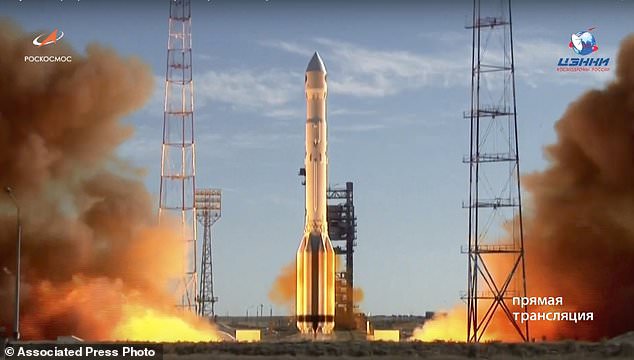A Russian Proton-M rocket successfully delivered the project into orbit after several delays dating back decades due to budget cuts and a growing impetus on the ISS.
Roscosmos intends for the telescope to arrive at its designated permanent home in the solar system in three months.
Once it arrives it will remain there until at least 2025 while it completes its X-ray survey - the first of its kind ever attempted.
Work on Spektr-RG telescope began in the 1980s and intended for a 1995 launch but was eventually scrapped.
Spektr-RG was revived in 2005 and redesigned to be smaller, simpler and cheaper.
In its modern form, the project is a close collaboration between Russian and German scientists, who both installed telescope equipment aboard the spacecraft.
It marks a hopeful new dawn for the Russian space agency after many missions have been postponed since the 1991 collapse of the Soviet Union.
Budget cuts have forced the Russian space program to shift toward more commercial efforts, such as ferrying astronauts to space via its Soyuz rockets.
A Russian Mars probe, called Mars 96, failed to leave Earth's orbit in 1996. A later attempt to send a probe to Mars, called Fobos-Grunt, suffered a similar fate in 2011.
Spektr-RG will sit at L2, a Lagrange point, which is one of a handful of positions in the solar system where objects can maintain their position relative to the sun and the planets that orbit it.
Located 0.93 million miles 91.5 million kilometers) from Earth, L2 is particularly ideal for telescopes such as Spektr-RG.
If all goes well, the telescope will arrive at its designated position in three months, becoming the first Russian spacecraft to operate beyond Earth's orbit since the Soviet era.
The telescope aims to conduct a complete x-ray survey of the sky by 2025, the first space telescope to do so.
The Russian accomplishment comes as the US space agency NASA celebrates the 50th anniversary of the Apollo 11 moon landing on July 20, 1969.
Daily Mail
More about: Russia















































